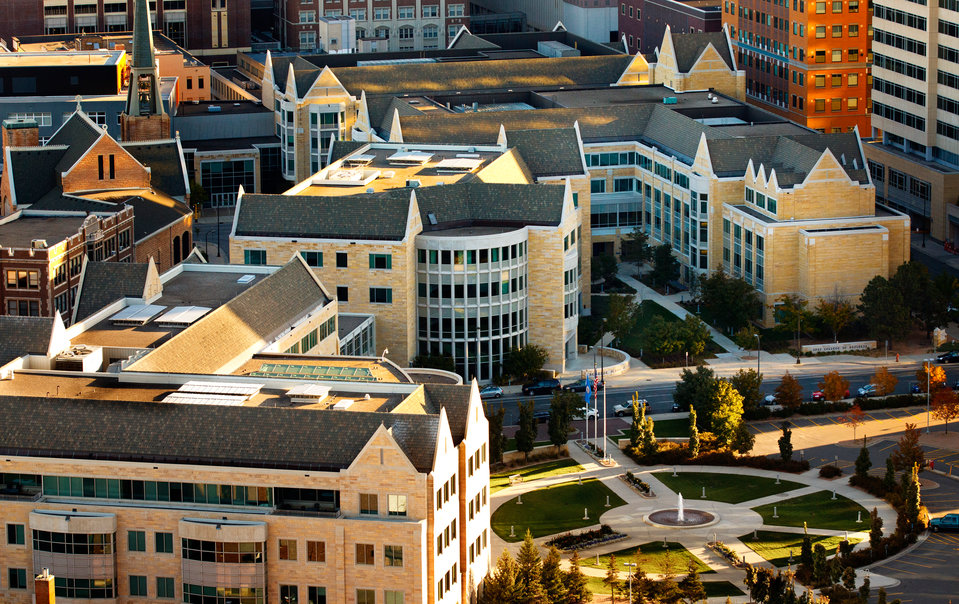The St. Thomas Law Religious Liberty Appellate Clinic filed two amicus curiae briefs in February with the United States Supreme Court in:
Our Lady of Guadalupe School v. Morrissey-Berru
Our Lady of Guadalupe School v. Morrissey-Berru, which has been consolidated with St. James School v. Biel, asks whether teachers with important religious functions at religious schools fall within the First Amendment's “ministerial exception.” The exception gives religious institutions the constitutional authority to determine who will serve as faith leaders and exempts the religious organization from legal penalties when hiring or firing such employees, even if the action is alleged to violate nondiscrimination laws.
The brief filed by the Religious Liberty Appellate Clinic argues that teachers teaching religion classes and performing other significant functions qualify as "ministers" under the ministerial exception, even if they don't have what a court would deem to be "minister-like" training or "credentials." It was authored by third-year law students Nathaniel Fouch and Erik Money, under the supervision of Professor Thomas Berg, who directs the clinic.
Fouch, Money and Berg first made this argument in an amicus curiae brief filed in support of the petition for the Supreme Court to review Morrisey-Berru. The three then adapted the argument into an article about the issue, published in the Federalist Society Review in January.
In their brief filed after the court granted certiorari, Fouch, Money and Berg point to, among other things, 18th-century colonial laws in New England and Virginia that set educational and other credentials for ministers and argue:
"In short, narrow definitions of minister – notably, laws setting educational and other credentials for ministers – were prominent among the evils to which the Religion Clauses were a response. Today, some courts are repeating this evil by effectively requiring that a minister possess 'credential[s], training, or ministerial background' in order for an organization to invoke the ministerial exception. Such requirements impose civil authorities’ assumptions – almost inevitably majoritarian assumptions – that certain training or formalities are inherent in the concept of a minister.
Our Lady of Guadalupe School v. Morrissey-Berru was set to be argued before the Supreme Court on April 1, 2020; however, due to the COVID-19 pandemic, the case has been postponed and a new date has not been announced.
Tanzin v. Tanvir
The Religious Liberty Appellate Clinic is also co-counsel on an amicus brief supporting Muslim plaintiffs in Tanzin v. Tanvir, in which the Supreme Court will determine whether the Religious Freedom Restoration Act (RFRA) of 1993 permits suits seeking monetary damages against individual federal employees.
In Tanzin, Muslim men sued alleging that federal agents put them on the government's no-fly list because they refused to cooperate, partly due to their religious beliefs, with the FBI’s efforts to investigate other Muslim individuals. The plaintiffs assert that the investigations were overly broad and discriminatory.
The Religious Liberty Appellate Clinic helped file the amicus brief on behalf of two ideologically diverse religious-liberty organizations, the Baptist Joint Committee for Religious Liberty and the Christian Legal Society, as well as 14 religious liberty scholars. The brief, drafted by University of Virginia legal scholar Douglas Laycock and by Professor Berg, argues that when Congress enacted RFRA in 1993, it would have intended to include the remedy of damages against officers, subject to qualified-immunity rules, as "appropriate relief" under the act.
Third-year students Money and Fouch also assisted on the Tanzin brief, with the addition of 2L Max Donohue as a research assistant. All were under the supervision of Berg.
Tanzin v. Tanvir was set to be argued before the Supreme Court on March 24, 2020; however, due to the COVID-19 pandemic, the case has been postponed and a new date has not been announced.
Religious Liberty Appellate Clinic
The Religious Liberty Appellate Clinic is one of 13 legal clinics at the St. Thomas School of Law. The clinic gives a small number of students each semester the opportunity to write appellate briefs, primarily amicus curiae briefs, in important cases involving religious liberty in the U.S. Supreme Court, lower federal courts and state appellate courts. The clinic supports religious freedom for all faiths and has filed briefs on behalf of Muslim, Jewish, and (both small and large) Christian groups.







